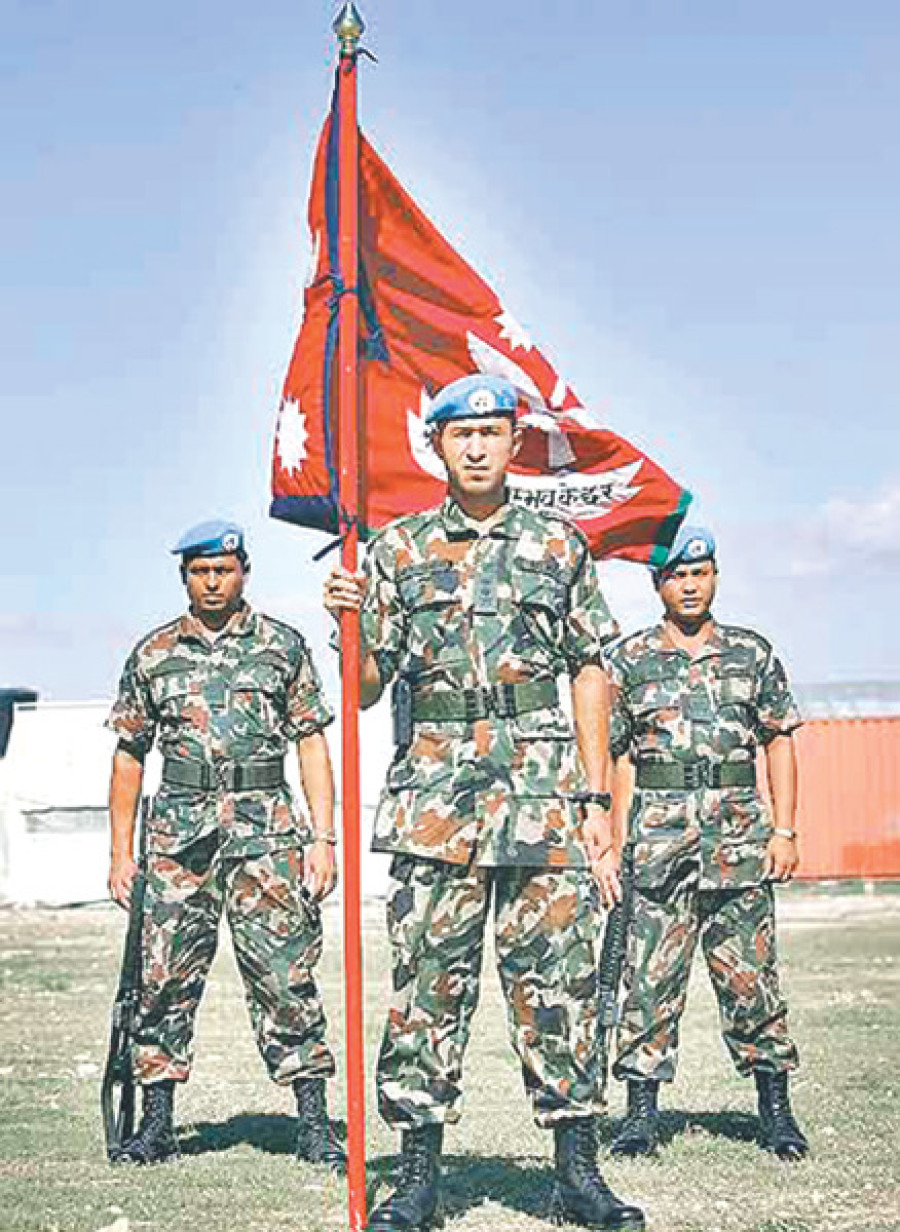Opinion
We like it the way it is
The acronym DIME, which stands for diplomacy, information, military and economy, is well known in the area of international security as they are considered to be key pillars of a country.
Roshan Khadka
The acronym DIME, which stands for diplomacy, information, military and economy, is well known in the area of international security as they are considered to be key pillars of a country. In the present context, Nepal’s diplomatic initiatives have become weaker. It has slipped on the intelligence and information fronts. The economy is collapsing. And the media is covered with news that India has been lobbying to have Nepal Army troops in the UN peacekeeping deployed under its leadership umbrella. This move to dilute the legacy of the Nepal Army is definitely not a good omen for an independent and sovereign country.
The South Asian Association for Regional Cooperation (Saarc), which was established under the provision of the UN Charter for regional cooperation and prosperity, has not been very successful due to the historic rivalry between India and Pakistan. Suspicions are now rife whether the sub-regional organization BBIN, which includes Bhutan, Bangladesh, India and Nepal but not Pakistan, was established to fulfil India’s interests. India has proposed to form a common BBIN military force and deploy it in UN peacekeeping missions under its leadership.
Nepal is an old member of the UN and an independent and sovereign country. Currently, India has been making rigorous efforts to get a permanent seat at the UN Security Council. In this context,India’s proposal to create a common UN peacekeeping mission under its leadership is a shameful act that deserves condemnation. Nepal should not and will not accept the proposal under any pretext or circumstances. The southern neighbour should understand that Nepal has been serving in UN peacekeeping missions with a strong commitment to the UN’s values and objectives. The UN was established to maintain international peace and security and prevent or minimise human casualties. The Nepali troops in blue helmets have been performing this task very well and earned the world’s admiration.
Apparently concerned by China’s gradual penetration into Saarc with the help of Nepal and Pakistan, India seems to want to use BBIN (a mini version of Saarc) as a new means to dominate regional geopolitics. This has raised questions on the very existence and purpose of BBIN. India’s proposal to deploy military forces under BBIN is an attack on the existence of a sovereign country. With this move, India seems hopeful of putting Nepal, Bangladesh and Bhutan in a single basket. The exclusion of seabound countries and the emphasis on BBIN while Saarc has its own connectivity, is a clear indication that India wants to misuse BBIN to dominate the region.
The Nepal Army’s top brass, security experts and political leaders should have good awareness of such sinister moves, and stand firmly against it for the protection of national sovereignty and integrity. This is the need of the hour. It is clear as crystal that Indian interference in Nepal’s politics is not something to get surprised about.This is not the first time that the southernneighbour has attempted to weaken the Nepal Army. But its high level of professionalism and patriotism has successfully overcome all these conspiracies.
We Nepali people including political leaders and intellectual communities should realise that the UN General Assembly is the largest international forum that serves as a common platform for all of us. Our first and foremost international agenda in the General Assembly constitutes the role of the Nepal Army in peacekeeping, and this is how the world identifies us in the UN. It is high time that Nepal showed the necessary courage to annul the self-centred desires of a country that fancies keepingNepal forever under its grip. BBIN should remain purely a platform to develop economic relations. Any intention to form security and military alliances under the guise of BBIN goes against the sentiments of Saarc and is unacceptable.
Like the African Union, a regional peacekeeping force is a good concept. But the formation of such a force should be based on each country’s capability, cordial relations and mutual trust rather than one particular country’s supervision and control.
It is advisable for India to enhance its own peacekeeping army’s capabilities instead of making attempts to take control of the Nepali peacekeeping army. It does not suit India to manifest a disposition of jealousy towards the Nepal Army’s demonstration of professional skill, trustworthiness, tolerance and neutrality in peacekeeping missions. India’s ruling classes seem to hold the notion that their vested interests in Nepal can be realised only when they are able to take full control of the Nepal Army one way or the other. It is necessary for all Nepalis who love their country to stand in one place and reject any such actions or initiatives.
Khadka is a Kathmandu-based journalist




 9.89°C Kathmandu
9.89°C Kathmandu










